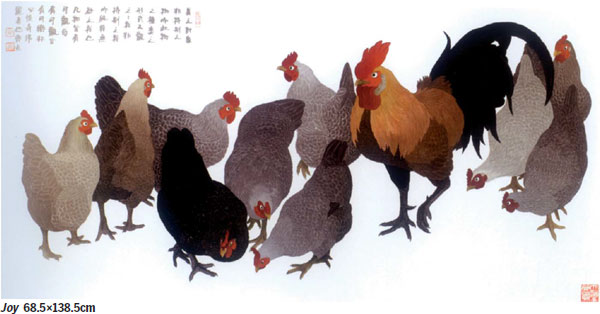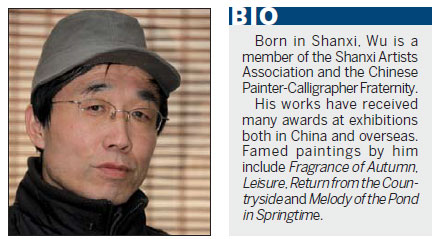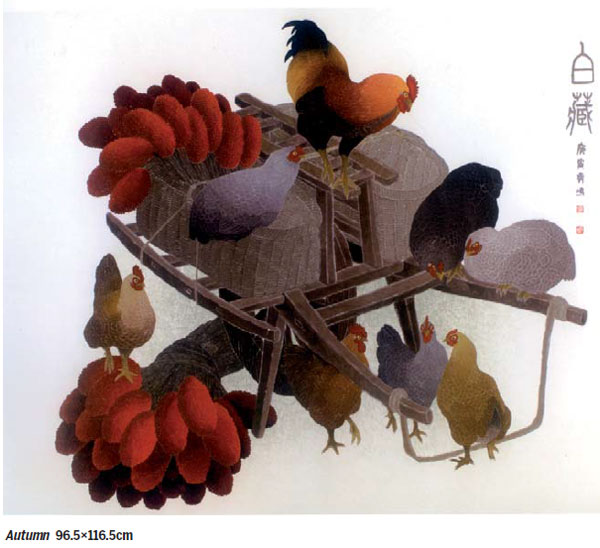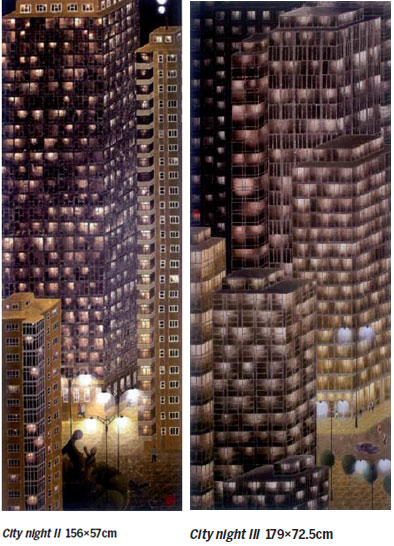Wu Qiming is able to create realistic ink and wash paintings with a traditional Chinese brush, Li Fusheng and Li Jin report.
China is not short of painters, both real and self-acclaimed. But Wu Qiming has shown his true talent by blazing a trail with innovative use of ink and wash.
Born in Shanxi province, Wu developed an affinity for art, especially painting, when he was a child. Yet the 57-year old did not work as a professional painter until he was laid off as a worker in the early 1990s and came to Beijing in 2002 in quest of his artistic dream.


Even more unusual than his experience are his achievements. At least Hong Kong art critic and gallery owner Kowk Ho Mum thinks so.
Though a realistic painter, Wu paints with a traditional Chinese brush. Kwok said it is difficult because the artist must paint accurately yet quickly to ensure right shade of ink.
Smooth brushwork will give the painting a sense of beauty and rhythm, but a slip of the brush cannot be redeemed, said Kowk.
"So it takes highly skilled brushwork to produce steady, flexible strokes that have personal characteristics. If his unique style is to be further developed, it would be definitely a significant contribution to the Chinese art as a whole," said Kowk.
What surprises Kowk even more is that Wu paints on a wide range of themes, a stark contrast to most painters who work on one particular topic.
Among his subjects are traditional farmhouses and gardens, flowers and birds, furniture, temples, modern buildings, sculptures, figures and many other things.
"He has a strong ability to extract the extraordinary beauty from ordinary things," said Kowk.
"There is no doubt that Wu has developed mature painting skills and there is no border or limitation in his world of art."
Something that makes him a rarity among modern Chinese artists is that he paints with his heart.
People can feel his passion and love for art and life in his works, said Kowk, citing the example of his rooster-themed paintings.
Even the birds' features and the texture of wooden farming tools laid nearby are depicted in detail with his signature technique, he said.
Another example of his dedication came when an art collector asked him to paint something similar to a work that had been sold to others. He refused and said "painting requires passion and a painting is valueless when the passion is gone".
Despite his strictness in creation, Wu is rather casual with his daily life.
He spends most of his time painting, contemplating, reading and writing but seldom appears at parties where artists are often found.
"My revenue from paintings is enough to cover daily expenses. And I don't need more. So I can get down and concentrate on my work," said Wu.
He does not conceal his distain for noisy artists who have almost become show-biz celebrities.
"It is tiring. But if they are really good artists is there any need for them to do that?"
Contact the writer at lifusheng@chinadaily.com.cn and mrlijin@chinadaily.com.cn


